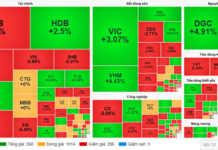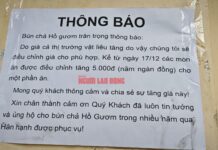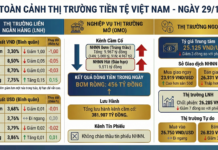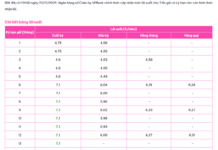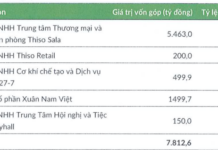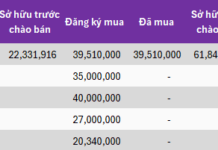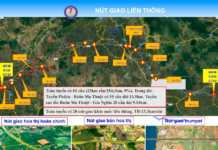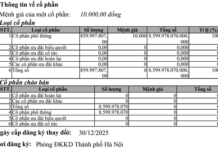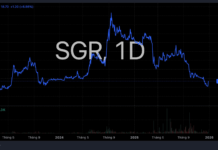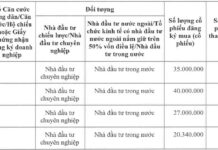On May 28, the Ministry of Industry and Trade held a meeting with the Ministry of Agriculture and Rural Development to discuss the production and export of rice and vegetables in the first four months of the year and to propose solutions to overcome challenges and boost exports in the remaining months of 2024.
RICE AND VEGETABLE EXPORTS INCREASE BUT STILL FACE LIMITATIONS
According to the Ministry of Industry and Trade, despite global complexities and their impact on economic growth and global trade, Vietnam has achieved notable results in agricultural exports, including rice and vegetables.
Data from the General Department of Customs showed that in the first four months of 2024, Vietnam’s rice and vegetable exports increased significantly in both volume and value. Rice exports rose by 9.5% in volume and 33.6% in value compared to the same period last year, while vegetable exports surged by 38.1% in value. Exports to key and potential markets showed encouraging growth.
However, alongside these achievements, there are still limitations and weaknesses in the production and export of rice and vegetables in Vietnam.

Specifically, some planting areas have expanded rapidly in scale but have not adhered to quality assurance procedures. Exporting enterprises have not thoroughly studied the requirements and signals of the export market, failing to establish their product brands. The role of commodity associations in creating consensus to protect the interests of members, enterprises, and the nation remains limited.
According to Nguyen Thanh Binh, Chairman of the Vietnam Vegetable and Fruit Association, as of May 20, 2024, the export turnover of Vietnam’s vegetables and fruits reached US$2.49 billion, up 25.7% compared to the same period in 2023. However, there are concerns about quality, especially for vegetables and fruits, as well as issues with product consistency and pesticide residues.
In addition, there is a long-standing issue of competitive buying and selling when the market fluctuates, especially in the raw material regions, despite various solutions being implemented.
Furthermore, the management, inspection, and supervision of quality-related violations in the production process, including input materials, processing, preservation, implementation of growing area codes, and packaging, have been inadequate, leading to violations.
PROPOSED SOLUTIONS
According to specialized agencies’ forecasts, the global demand for rice and vegetables will continue to grow due to supply disruptions in many countries. Product quality requirements will become more stringent, and technical barriers are already being erected by importing countries to protect their domestic trade.
On the other hand, Vietnam is actively negotiating, signing, and upgrading Free Trade Agreements (FTAs) with potential partners in new and potential markets, such as Halal food products, Africa, and Latin America. These factors will significantly impact Vietnam’s rice and vegetable trade in the coming time.
Given the intertwined opportunities and challenges, the Ministry of Industry and Trade will focus on promoting and improving the efficiency of rice and vegetable exports towards sustainability and ensuring national food security. This includes intensifying propaganda and supporting enterprises in accessing information, maximizing the benefits of FTAs, and meeting the requirements of each market. The ministry will also assist enterprises in effectively responding to defense and trade disputes, if any.
The Chairman of the Vietnam Vegetable and Fruit Association proposed that authorities coordinate with local governments and associations to improve inspection and supervision, especially for harvested products. He emphasized the importance of managing traders effectively to prevent competitive buying and selling. Additionally, accurate and efficient growing area codes should be implemented, and negotiations for official exports of avocados and fresh coconuts should be promoted to boost exports.
In response to these suggestions, Minister of Industry and Trade, Nguyen Hong Dien, requested the Ministry of Agriculture and Rural Development to continue restructuring the rice, vegetable, and fruit industries towards improving quality and efficiency.
The ministry should also actively monitor the situation and provide timely information on the agricultural product market. It should guide and advise local governments, enterprises, and associations on complying with standards, norms, and quality requirements of import markets.
The Ministry of Agriculture and Rural Development should take the lead in coordinating with the Ministry of Industry and Trade and other relevant ministries and sectors to monitor and remove technical barriers and phytosanitary barriers imposed by importing countries. They should proactively negotiate and sign agreements on phytosanitary measures and technical regulations for the quality of paddy and rice to facilitate exports.
Units of the Ministry of Industry and Trade will continue to support enterprises in promoting trade promotion activities and building brands to develop markets for agricultural products.


